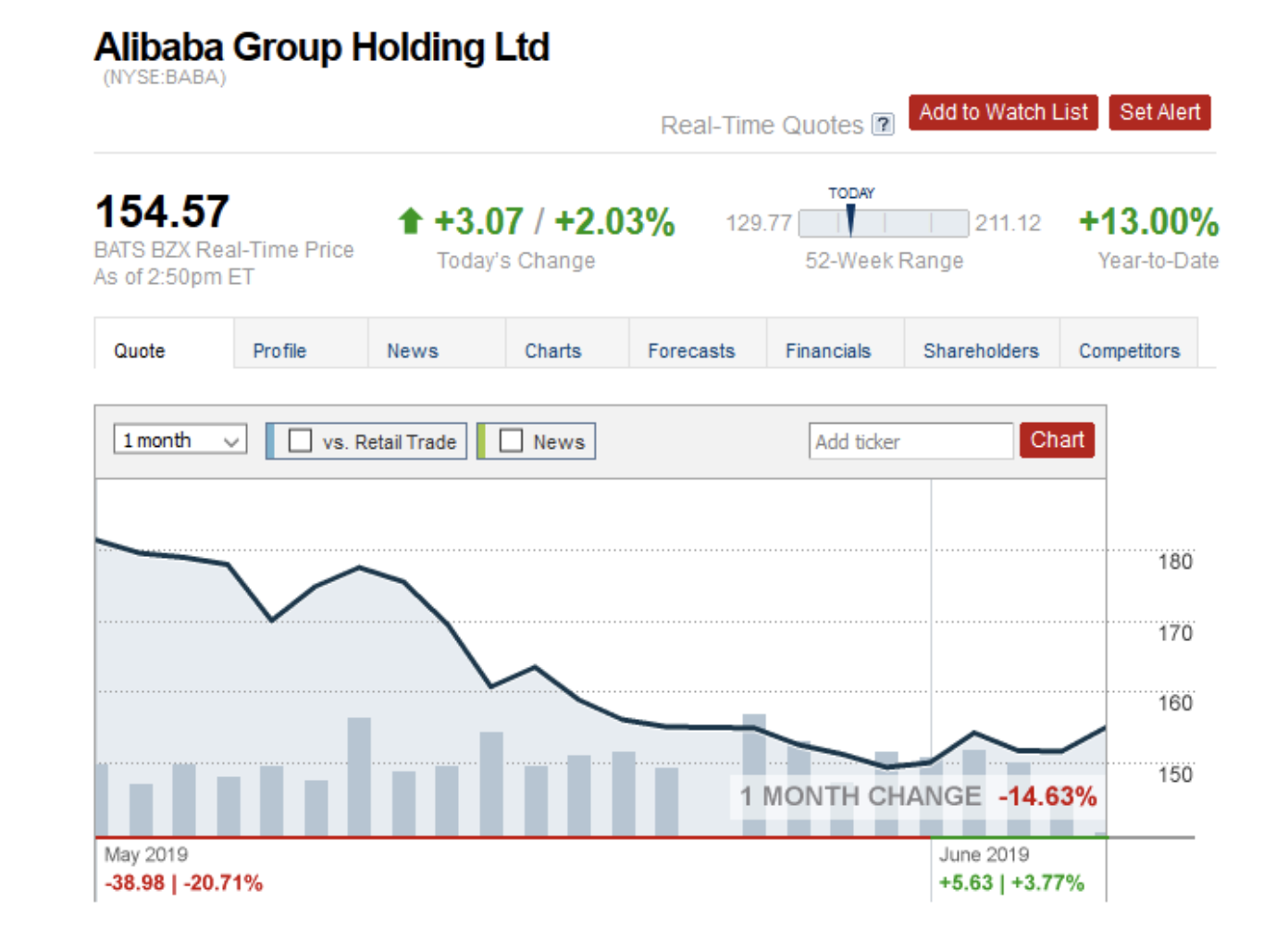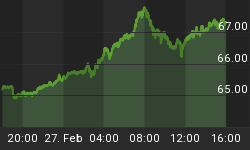There’s no denying that the U.S.-China tariff war has taken a severe toll on financial markets. The U.S. stock market benchmark, the S&P 500 Index (SPX), had lost nearly 10 percent since President Donald Trump opened a new round of trade fire at key allies about a month ago--until the Fed finally came to the rescue with renewed talks of rate cuts a few days ago.
As expected, Chinese stocks have been bearing the full brunt of the fisticuffs, with China’s mainland benchmark, the iShares MSCI China ETF (MCHI), still down nearly eight percent over the last 30 days. Meanwhile, erstwhile high-flying sectors such as internet companies have been badly hammered, with the KraneShares CSI China Internet ETF (KWEB) plunging 11.4 percent over the timeframe.
Nevertheless, that has hardly slowed the inexorable march of some Chinese heavyweights.
Notably, China’s leading eCommerce player, Alibaba, Inc. (NYSE:BABA), and multinational investment holding conglomerate, Tencent Holdings (OTCPK:TCEHY), seem to be defying all odds by continuing to thrive in the mayhem. Both companies recently posted highly impressive earnings that suggest they’ve got plenty of growth runways ahead, trade wars notwithstanding.

(Click to enlarge)

(Click to enlarge)
Source: CNN Money
Blowout earnings
Alibaba reported FY 19 Q4 revenue of $13.93B, good for +51 percent Y/Y growth and $600 million above the consensus. The company’s GAAP EPS of $1.47 was $0.96 better than Wall Street’s consensus while non-GAAP EPS of $1.28 beat estimates by $0.33.
Tencent was no slouch in the earnings department either, with FY Q1 revenue of RMB85.46B ( $12.7 billion) good for 16 percent Y/Y growth; GAAP EPS came in at RMB2.84 while non-GAAP EPS was RMB2.19.
Quite naturally, value investors and bargain hunters will be scouring the charts for good entry points into oversold winners like these. Another big encouragement: investors who have been following the Chinese market are probably aware that the Shanghai Composite was outperforming the Dow Jones this year before the latest trade skirmishes and still continues to do so.
The big question: is it even safe to dabble in Chinese stocks at the height of one of the biggest trade wars in recent memory?
The trajectory of majority of Chinese stocks will hinge on how soon a trade deal will happen between the two warring economies. Unfortunately, not too many analysts are optimistic that it’s going to happen any time soon or that it will defuse much of the underlying tension.
At least that’s what one of the world’s largest asset managers seems to think. As BlackRock, manager of $411 billion in assets for entities such as sovereign wealth funds and central banks, recently told CNBC:
“We do think a trade deal will happen, but let’s be very clear: Will it solve all the underlying tensions between the U.S. and China, in particular, the more strategic issues present in the tech sector? We don’t think so.” Related: Gold Is In A Precarious Spot
Nevertheless, there are some Chinese industries that are likely to hold up quite well even as Washington and Beijing continue slugging it out.
Chinese consumer companies such as Alibaba, Tencent, and JD.com (NASDAQJD) are among those expected to continue doing well regardless, thanks to the continued growth in purchasing power by middle-class Chinese consumers.
China's financial services sector has been booming as well, evidenced by the recent 50 percent climb by Wall Street debutant Jiayin Group (JFIN) on the same day that Uber, Inc. (NYSE:UBER) listed and tanked.
In general, Chinese companies that do a large chunk of their businesses domestically should continue doing just fine.
Trade war ETF
Most investors looking to play the trade war usually look to bet against companies that are likely to suffer. However, for those interested in the winners, the newly-minted Innovation Alpha Trade War ETF (TWAR) does the grunt work of scouring the market for you.
TWAR plans to buy companies that have been winning government contracts on the premises that state support for these firms could increase if the trade war intensifies. Investors better not get too squeamish-- only firms with strong intellectual property are eligible for the fund.
By Alex Kimani for SafeHaven.com
More Top Reads From Safehaven.com:
















